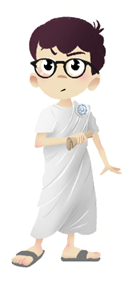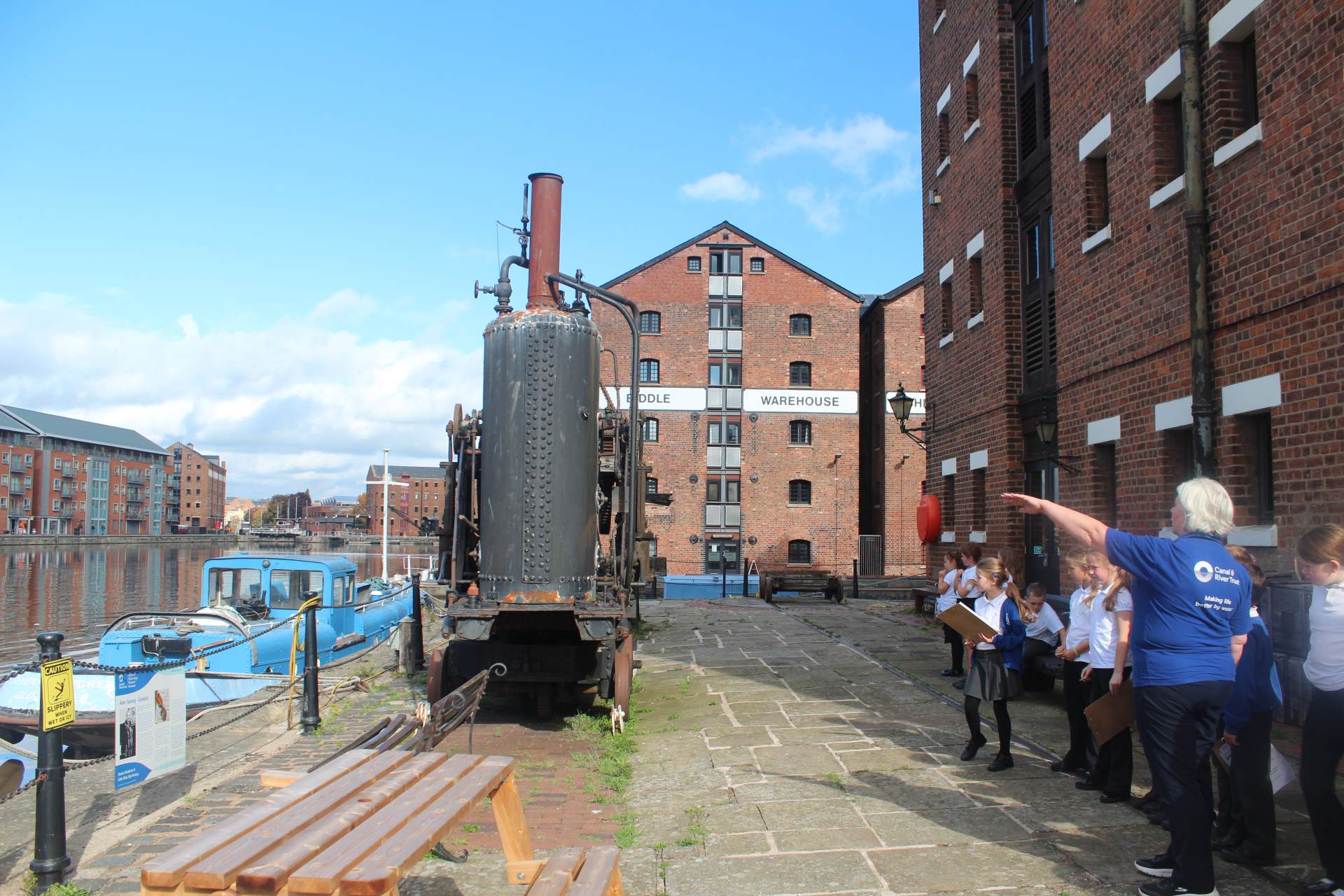History
Welcome to History at Bussage! At Bussage, History is more than learning about the past—it's about understanding the present and shaping the future. Our creative approach to teaching and learning is designed to spark curiosity, inspire a love of History, and help children see the connections between historical events and their own lives.
Our goal is to equip children with the skills to think critically, weigh evidence, and form balanced judgements. We encourage pupils to consider multiple viewpoints, make connections across time periods, and reflect on how history shapes our society today.
"History is the story of people, not just dates and events." — Dan Snow
What is a Historian?
At Bussage, we believe a Historian is someone who seeks to understand the past and how it shapes our present and future. Learning about history means developing the ability to think critically, reflect thoughtfully, and engage in meaningful debate and discussion. Historians are curious – they ask questions, form lines of enquiry, and act like detectives, searching for clues in both primary and secondary sources. They explore not just what happened, but why events occurred and how they have impacted the world we live in today.
Being a historian also means developing important personal qualities such as empathy, integrity, and compassion – the ability to step into someone else’s shoes and understand different perspectives with cultural sensitivity. It involves challenging our own views and those of others, as well as understanding the chronology and legacy of past cultures and events.
At the heart of studying history is a passion and enthusiasm for discovering stories of the past. As historian Mary Beard reminds us, “History is not the past. It is the present. We carry our history with us. We are our history.”
Future Careers in History
Studying History doesn’t just help children understand the past—it opens doors to a wide range of exciting future careers. The skills developed through historical enquiry, such as critical thinking, research, analysis, and storytelling, are highly valued in many professions. Young historians might go on to become archaeologists, uncovering ancient artefacts, or museum curators and educators, bringing history to life for others. They could inspire future generations as teachers, investigate the past as researchers or archivists, or share stories through roles as authors, writers, or travel writers. Some may work as media-historical consultants, shaping accurate historical content for films and TV, while others might thrive as content creators, tour guides, or even in libraries as librarians. History opens up a world of possibilities, helping children develop skills that are relevant far beyond the classroom.
Our core values in History
The teaching of History at Bussage is underpinned by our four cornerstones:
- Hope: Learning from the past to inspire a better future.
- Wisdom: Gaining knowledge and understanding through thoughtful enquiry.
- Community: Exploring the histories of different cultures and communities to foster empathy and connection.
- Dignity: Valuing and respecting the diverse stories and experiences of people throughout history.
By focusing on these values, we prepare children for the next stages of their education, fostering an appreciation of our multicultural society and developing the knowledge, understanding, and skills needed to become confident young historians.
Join us on an exciting journey through time, where every lesson uncovers the stories that shape our world.
Our History Curriculum
At Bussage, our History curriculum focuses on enquiry-based learning, encouraging children to explore, question, and think critically about the past. We engage pupils through:
- Critical Thinking: Asking thoughtful questions, evaluating evidence, and analysing different perspectives.
- Interactive Learning: Hands-on activities, role play, historical artefacts, and immersive experiences.
- Storytelling and Research: Bringing historical figures and events to life through stories, projects, and investigations.
The History curriculum is covered in a two-yearly teaching cycle within each Key Stage, ensuring that children study all of the content, knowledge and skills required by the National Curriculum.
Details of when the different topics and objectives are covered in each Key Stage can be found in the Curriculum Overview document, which constitutes a long-term plan.
Some objectives are covered more than once within the two-yearly cycle to ensure long term knowledge lasts.
Teachers within Key Stages plan together to create engaging and informative teaching and learning opportunities which take into account prior learning and plan for progression.
In both Key Stages the children will cover requirements as outlined in the EYFS (for Reception) and the National Curriculum (for Key Stages 1 and 2).
In Reception, children will:
- Talk about past and present events in their own life and of family members.
- Use everyday language related to time.
The EYFS History is integral to the Early Learning Goal of “Understanding the World” where pupils are encouraged to talk about the past and present events in their own lives and in the lives of their family members. In addition, pupils learn about similarities and differences in relation to objects and talk about changes they observe. An awareness of the concepts and vocabulary of history are encouraged through purposeful play and a mix of adult and child led activity.
Throughout Key Stages 1 and 2, pupils will learn to:
- Investigate and interpret the past
- Build an overview of world History
- Understand chronology
- Communicate historically
They will learn these skills and knowledge through study of the following topics:
Key Stage 1
- The lives of significant individuals in Britain’s past who have contributed to our nation’s achievements: Brunel
- Key events in the past that are significant nationally and globally, particularly those that coincide with festivals or other events that are commemorated throughout the year.
- Significant historical events, people and places in their own locality.
Key Stage 2
- Changes in Britain from the Stone Age to the Iron Age.
- The Roman Empire and its Impact on Britain with a local study Roman Cirencester
- Britain’s settlement by Anglo Saxons and Scots.
- The Viking and Anglo Saxon struggle for the Kingdom of England.
- A local History study-WW2 Cheltenham
- A study of a theme in British History: WW2
- Early Civilizations achievements and an in-depth study of: Ancient Greece and Ancient Egypt
- A non- European society that contrasts with British History : Maya.






